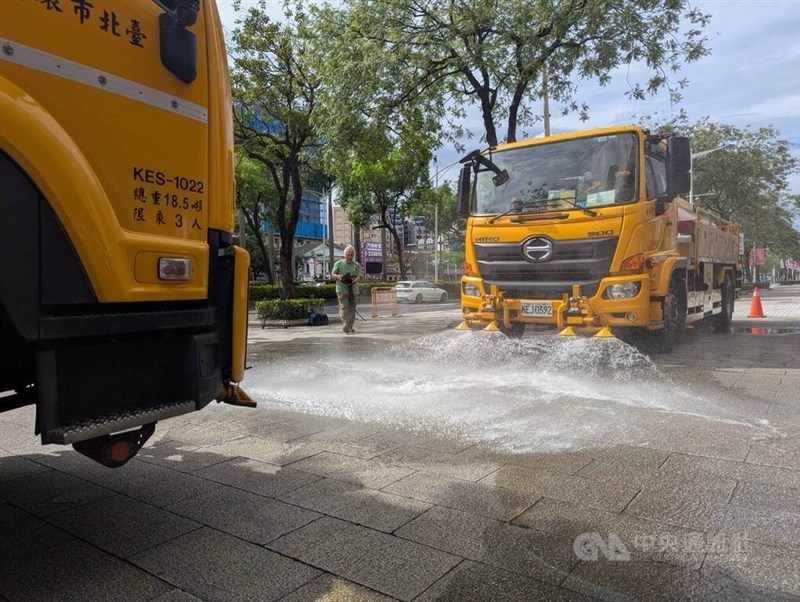
Taipei, July 22 (CNA) The Ministry of Environment (MOENV) held its first "anti-heat" drill Tuesday, with Environment Minister Peng Chi-ming (彭啓明) saying urban heat is expected to reach 40 degrees Celsius "very soon."
The drill simulated a "red signal" scenario defined by the Central Weather Administration (CWA) -- when daily maximum temperature reaches 38 degrees Celsius for three consecutive days -- and government agencies reported what they would do in response to the extreme heat event.
Various agencies took part in the drill, including the Ministry of Transportation, the CWA, and the Ministry of Labor, as well as local governments like the Taipei and Hsinchu City government.
According to Peng, record heat is being recorded every year, with the Taipei Basin area being the hottest due to climate factors, landscape and global warming.
Likening extreme heat to typhoons, he said drills need to start now so that responses can be refined, such as when and where local governments will spray water to reduce the heat, and whether pet owners need to be warned to prevent their pets from walking outside.
He added that as of now, extreme heat is not covered by the Disaster Prevention and Protection Act, and he hopes the Ministry of Interior would consider amending the law.

Lin Tzu-ping (林子平), a civil engineering professor at National Cheng Kung University who was at the drill, said simulations like this allow lapses in response to be found and long-term solutions to be made.
He highlighted the need for government agencies to know who or where may be affected by the heat, and mentioned this year's drill did not include large outdoors events, such as religious gatherings, marathons and concerts, yet those events could also be heavily affected.
Professor Wang Yu-chun (王玉純) of Chung Yuan Christian University's Department of Environmental Engineering also said complex effects of the heat, such as disrupted medical services following heat-induced electricity and water outages, should be taken into account in future drills.
Additional threats include damage to ecosystems in urban areas, including the Taipei Zoo and parks around Taiwan, and fires erupting from waste exposed to heat, she said.
- Business
Taiwan's export market to slow in second half of 2025 due to U.S. tariffs
07/22/2025 10:54 PM - Cross-Strait
- Society
NTNU department recommends dismissal of former soccer coach: Report
07/22/2025 09:27 PM - Politics
Competing rallies planned ahead of KMT recall votes Saturday
07/22/2025 08:27 PM - Society
12 imported cases of dengue fever reported last week: Taiwan CDC
07/22/2025 07:50 PM